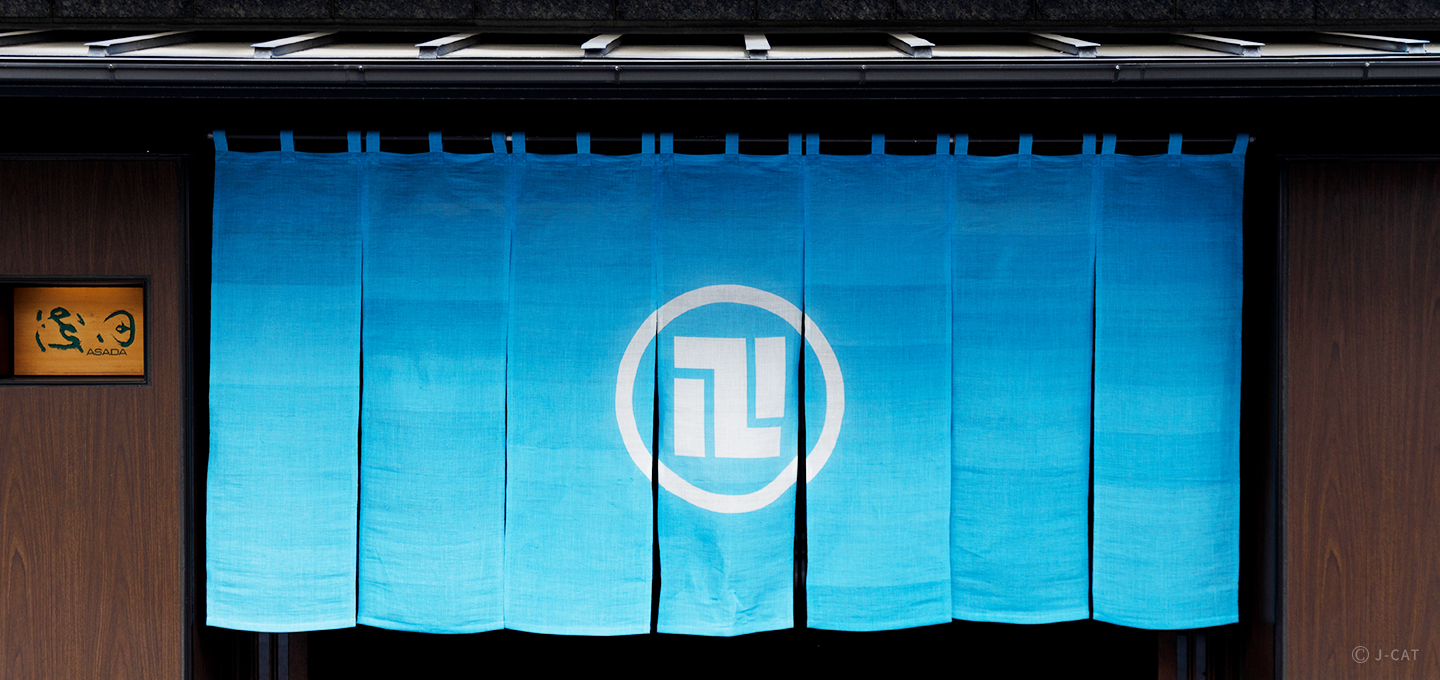
Special Experience
Tokyo
Learn Traditional Shamisen Music from Master Itchu Miyako, and Enjoy Lunch at a Longstanding Ryotei Restaurant in Tokyo
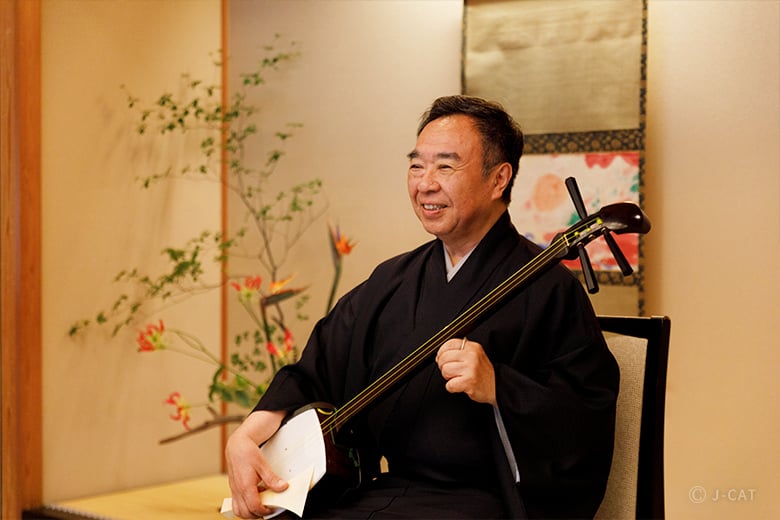
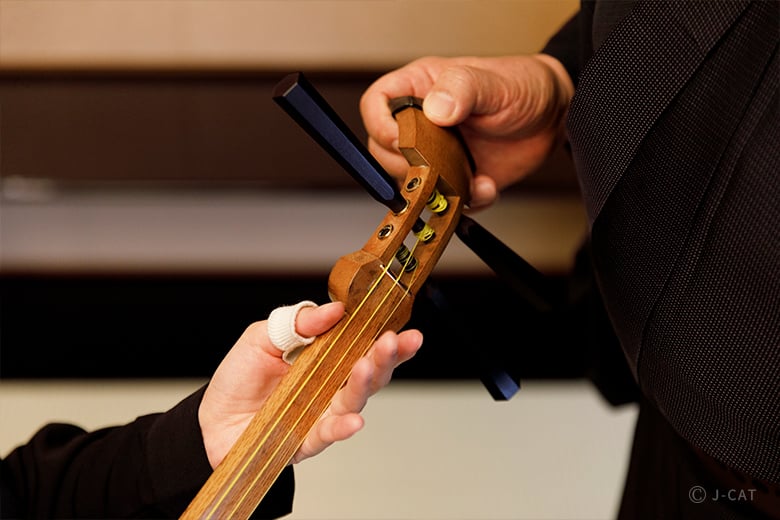
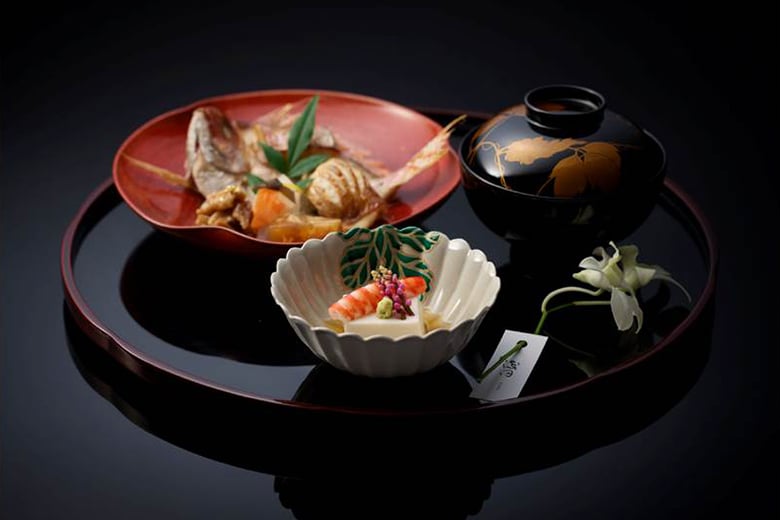
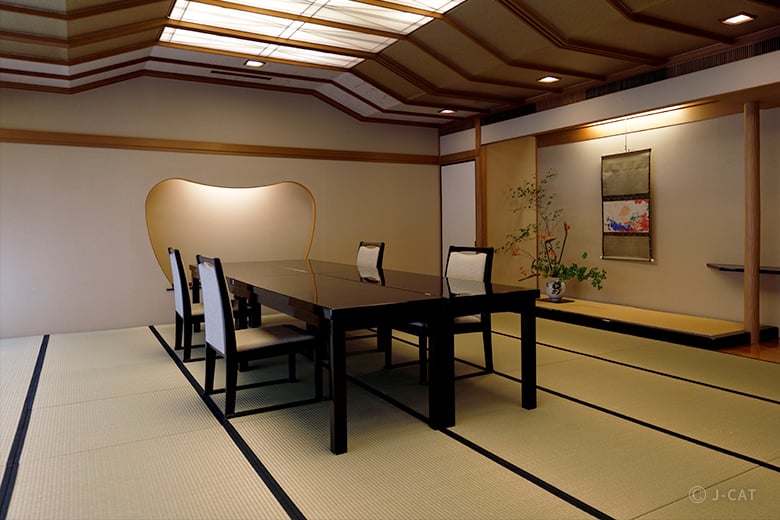
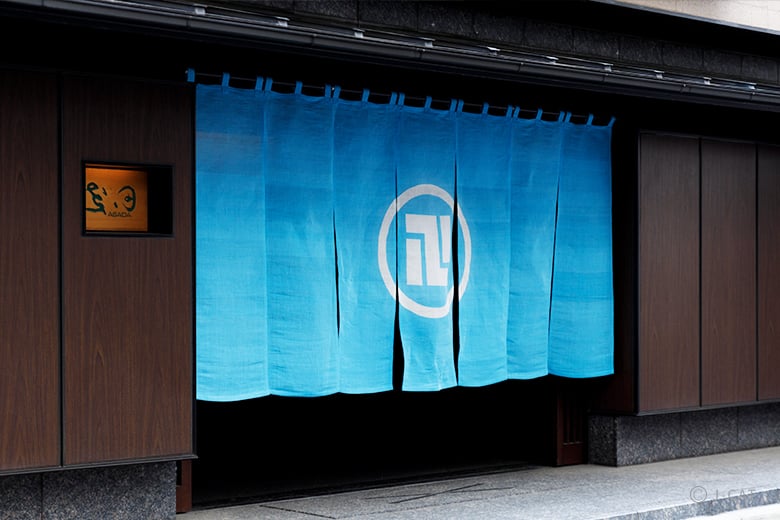
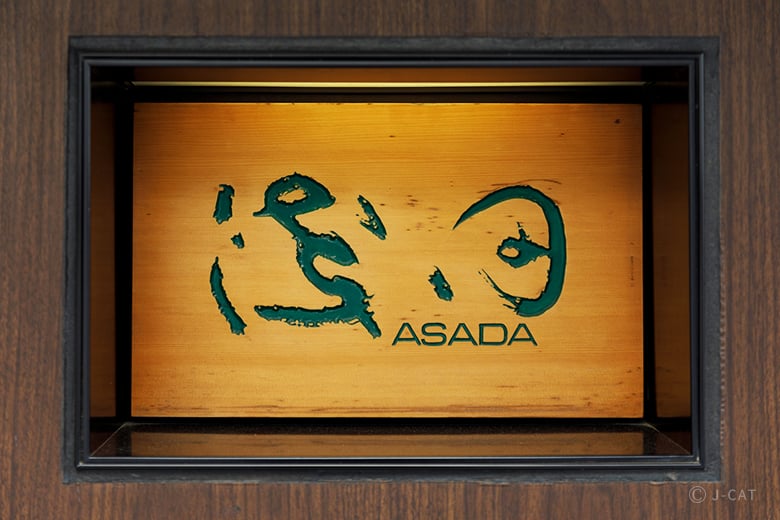
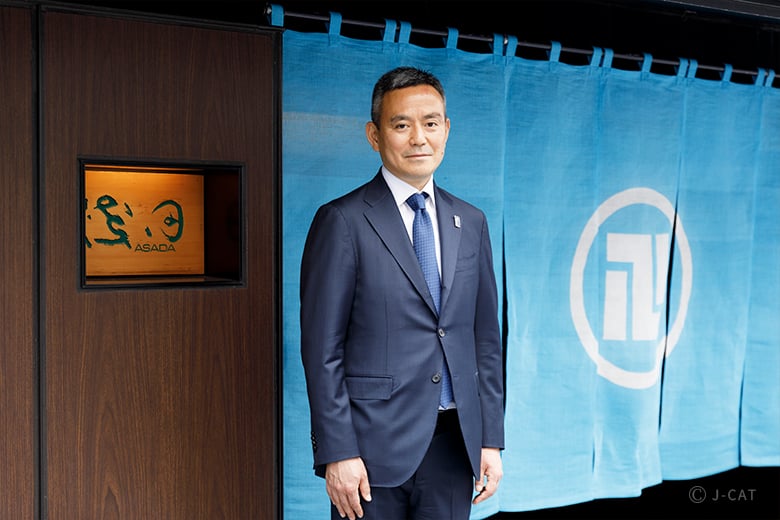
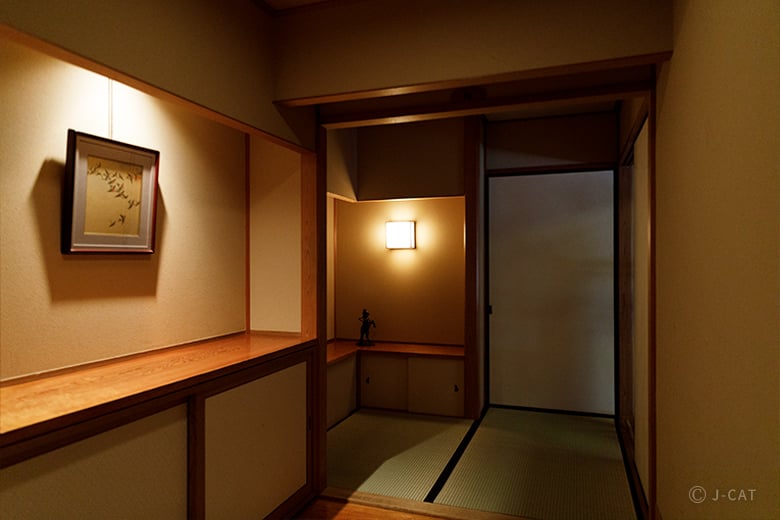
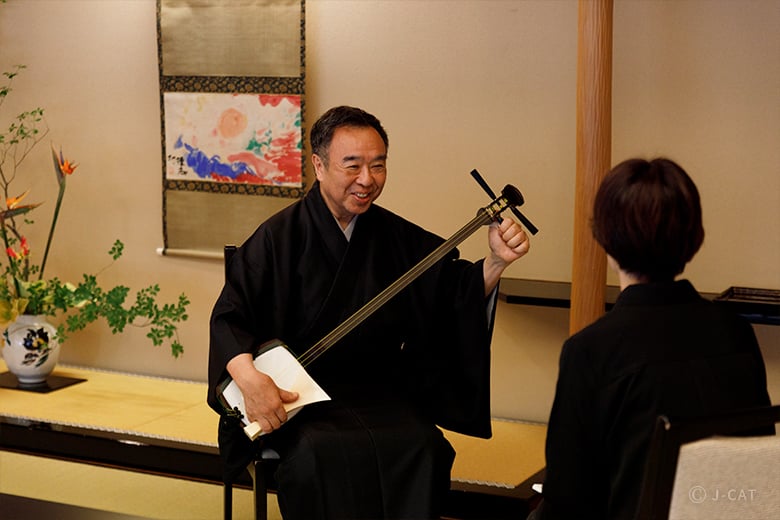
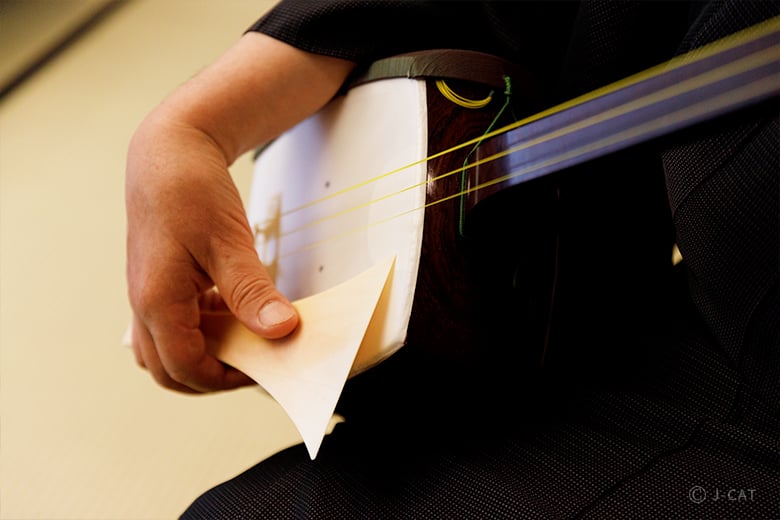
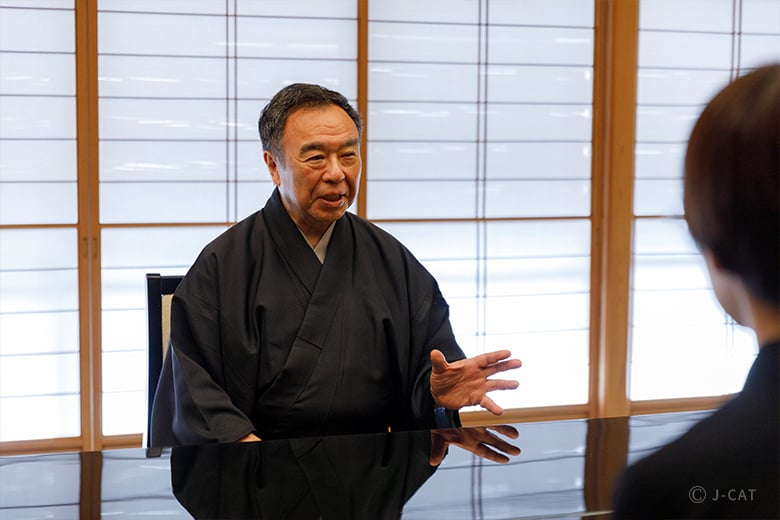
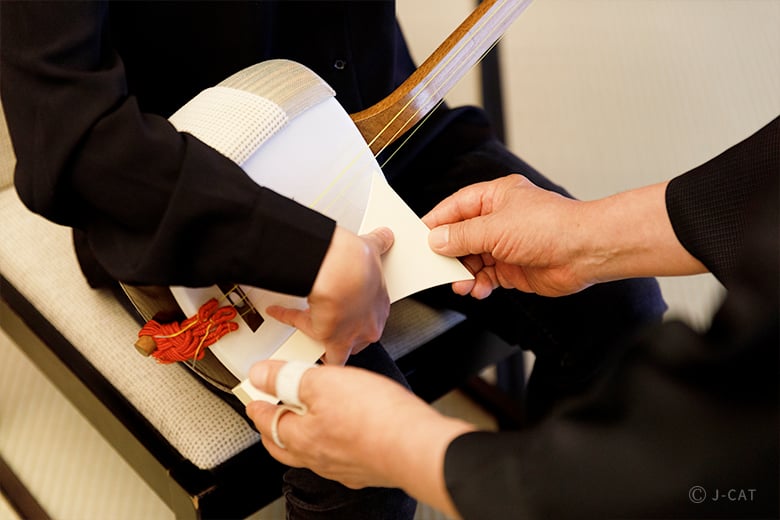
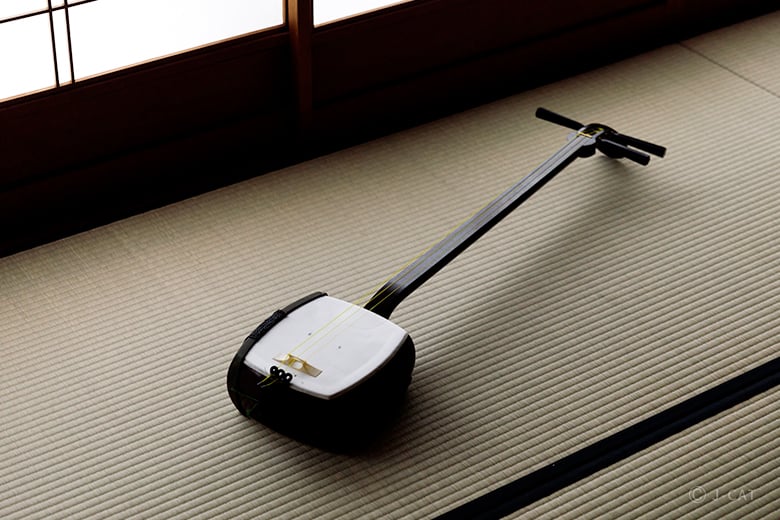
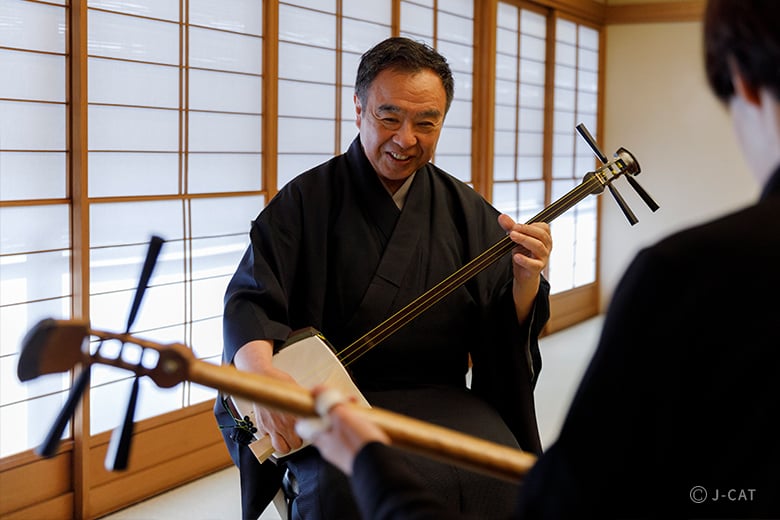














Overview
In a private tatami room at the storied Akasaka Asada restaurant in Tokyo’s Akasaka district, enjoy a performance of the traditional shamisen lute from shamisen player Itchu Miyako. This master musician will also guide participants in getting hands-on playing it. Enjoy a riveting talk on the Itchu-bushi tradition of shamisen music, a nationally-recognized important intangible cultural property, and its roots in Buddhism. Finish off the experience by delighting in delicious Kaga cuisine in the luxury of the Akasaka, a traditional nightlife entertainment district where traditional hospitality has reached the present over generations of living history.
Key Features
・Reserve a private tatami room at Akasaka neighborhood fixture of Japanese dining Aksaka Asada to enjoy traditional music.
・Revel in a masterful shamisen performance by Itchu Miyako, 12th generation head of the Itchu-bushi school of music, before receiving instruction in the instrument yourself.
・Delight in a fresh seasonal surf-and-turf lunch of the sumptuous Kaga cuisine of Ishikawa Prefecture.
Tokyo
120mins
from ¥129,000 /person
1 - 6 participants
Available in English
Cancel free up to 4 days prior
Details
The Shamisen as a Nexus between Western Music and Japanese Culture
Growing up watching his father play the shamisen to become a master of the instrument himself, experience instructor Itchu Miyako nonetheless was fascinated by and drawn toward Western musical greats such as Wagner from a young age. He even once aspired to be an orchestra conductor. “In addition to music, I was also a big fan of the sumi-e ink paintings of Tohaku Hasegawa (1539-1610) and Sesshu (1420-1506), and karesansui dry gardens,” says Miyako. “When I realized in my second year of high school that the shamisen might be a way for me to incorporate all of these interests into one pursuit, I took up the instrument.”

Itchu Miyako strives toward the future of Japanese traditional music
Miyako received an Agency for Cultural Affairs Art Award in 1985. In 1991 he became the 12th generation head of the Itchu-bushi school, taking the soke (family head) name he goes by today. With the “classic among classics” aesthetic traditions of Itchu-bushi guiding him, he currently teaches and performs both domestically and internationally. This plan gives participants the opportunity to watch him perform up close and feel the essence of Japanese traditional culture through music.

Itchu-bushi music uses a medium-length shaft/handle, called a chuzao (literally “medium shaft”)
Enjoy Japanese Food and an Atmospheric Tatami Space at the Storied Akasaka Asada Restaurant
Akasaka Asada is a longstanding fixture of Tokyo’s Akasaka neighborhood, with roots as inns in Kanazawa, Ishikawa since 1867. Akasaka is a historic traditional nightlife area, still packed with establishments for taking in geisha dances and other performances in traditional tatami rooms.

At the entrance, a large noren shop curtain emblazoned with the shop’s symbol kuzushi-manji (cursive Buddhist sauwastika)
Akasaka Asada serves traditional Kaga cooking loaded with fresh seasonal ingredients direct from Kanazawa, plated beautifully in traditional Ishikawa prefecture artisanal dishes. The restaurant is also known for its top tier hospitality and attentive service and attention to detail, including the gorgeous tatami, shoji sliding screens and fusuma sliding doors, and earthenware walls.

The atmosphere of this historic nightlife district of geisha dances and conversation lives on in Akasaka Asada
“Fewer and fewer Tokyo restaurants offer tatami room dining,” says Akasaka Asada’s proprietor Shota Asada, “but I wanted to preserve these traditions for future generations to enjoy. Here you can go beyond simply eating, and enjoy this cuisine in a space where its contextual traditions are also alive and well, coming away with unforgettable memories of your time in Japan.”

Head of Asakasa Asada, Shota Asada, is a lover of the Joruri musical storytelling tradition which he studied under Itchu Miyako
Itchu Miyako talks of an “intertwined destiny” between music and restaurants. Just as every musical style in the world has its most purpose-suited venue, the sound of the shamisen is said to be at its best in a tatami room. There is probably no better place to enjoy it than a traditional Japanese restaurant.
Discover Buddhist Precepts Expressed through the Music of Itchu-bushi
Before his performance, Miyako introduces the story of the Itchu-bushi tradition. Its progenitor, Miyakodayuu Itchu I, was born in 1650 at a Kyoto temple. He sought to spread the Jodo Shinshu Buddhist message of universal salvation through music, and synthesized a variety of shamisen styles to establish his own. The ideal of Itchu-bushi is to transport listeners alive to the Buddhist Pure Land through music. Its subtle, refined melodies were a big hit with the Edo (old Tokyo) upper class.

Elegant, sophisticated melodies are a defining feature of the Itchu-bushi shamisen style
Itchu-bushi is always accompanied by Joruri narration, a type of theatrical musical storytelling through shamisen. Although they are performed together, they form a distinct polyphony through their separate through lines. Japanese music does not follow a strictly-defined score, transmitting its melodies and rhythms through oral recitation and clapping.
After the explanations have drawn you in, it’s time to enjoy an actual performance by Miyako. Revel in the rich yet delicate timbre and expressiveness of the shamisen.

Learn the correct way to hold the instrument and its plectrum
When the performance is finished, you can experience playing the instrument yourself under Miyako’s guidance. He will teach you how to hold the instrument and its plectrum, and how to play the scales that form the basics of Japanese music. “Tuning” here refers to bonding with nature through the three strings of the instrument. Here in this tranquil tatami space a world apart from the city bustle outside, you can get deep into an experience of Japanese traditional culture.

This is a precious chance to experience the deeply expressive power of the shamisen with your own hands
Delight in Kaga Cuisine Made from Fresh Ingredients Served in Beautiful Dishes
After the shamisen performance, enjoy lunch (drinks not included). The long history of Kaga cuisine has been marked by successful refinements on the intersection between Eastern and Western culinary arts. Akasaka Asada’s cuisine is made with fresh ingredients which arrive every morning direct from Kanazawa’s bountiful fields and sea, and served on gorgeous artisanal dishes from Ishikawa prefecture such as Wajima lacquerware and Kutani-ware. It’s just as pleasing to the eye as it is to the taste buds.

The restaurant’s Kanazawa-native chef de cuisine always has his diners’ perspective in mind as he seeks to create memorable meals
“A Kind Heart”: The Origin of Japanese Music
Miyako says that kindness is the fundamental principle behind Japanese music. “These musical traditions began with biwa monks (storyteller monks who accompanied their tales with the biwa lute) who played music to mourn and memorialize the fallen of the Taira Clan, who met their ends in the Genpei War (a conflict between Taira no Kiyomori’s Taira Clan and Minamoto Yoritomo’s Minamoto Clan) at the end of the Heian Period (1180-1185). This spirit of kindness led to the shamisen storytelling of the Edo Period.”

A special opportunity to enjoy traditional Japanese music and Kaga cuisine
This hands-on experience of Japan’s proud musical traditions is sure to become a lifelong memory. Enjoy this special opportunity to delight in Japanese culture with all five senses at a longstanding restaurant in Tokyo’s Akasaka area, where the traditional nightlife culture of history lives on to this day.
Akasaka Asada / Itchu Miyako

Akasaka Asada / Itchu Miyako
Akasaka Asada
In 1659, the lord of the feudal domain of Kaga (present day Ishikawa Prefecture) ordered his vassal Asadaya Ihei to take charge of all official documents and luggage, and the latter then went on to found the Asada Inn. In 1971, the inn opened its Akasaka Asada restaurant in Tokyo’s Akasaka neighborhood, and it went on to draw new ideas out of the bedrock traditions of Kaga cuisine. The restaurant prioritizes hospitality, service, and the rich culture of traditional fine ryotei dining establishments.
Itchu Miyako
12th generation head of the Itchu-bushi music tradition and heir to its rich aesthetics, Itchu Miyako teaches his apprentices while striving toward the future of the art through performance in Japan and abroad. In addition to passing on other Edo traditions such as Joruri and dance, he also takes part in the Tokiwazu-bushi tradition of shamisen music, as its second generation following his father Tokiwazu Mojizo.
Location
Akasaka Asada
Minato Ward, Tokyo
Request for booking
Select first preferred date (JST)
February 2026
Sun
Mon
Tue
Wed
Thu
Fri
Sat
Instant Booking
Request Booking

17
Full

17
Unavailable
- Instant Booking: Your reservation is confirmed immediately upon payment.
- Request Booking: You will receive confirmation after the host reviews your request.
Tokyo
120mins
from ¥129,000 /person
1 - 6 participants
Available in English
Cancel free up to 4 days prior
Things to know
Contact Us
If you have any questions, please contact us using the form below.
We also accept bookings from corporate clients and travel agencies.